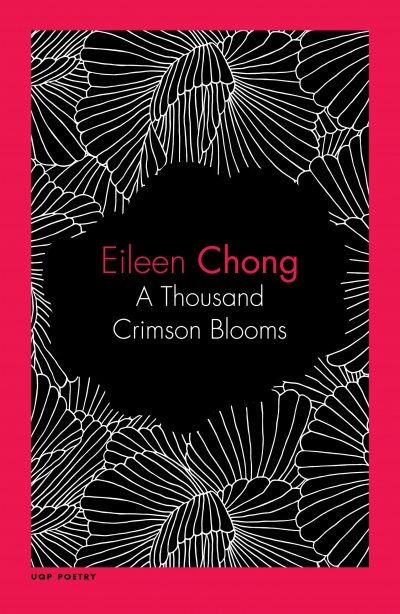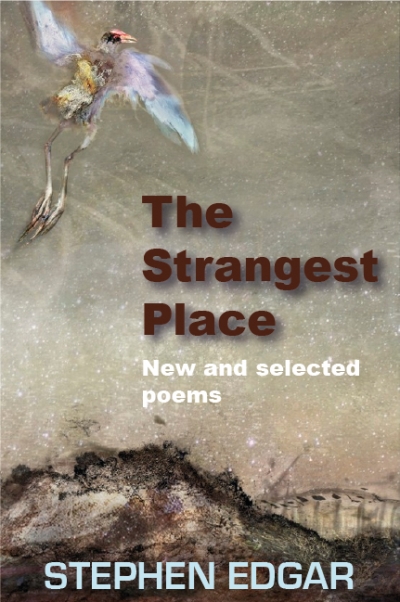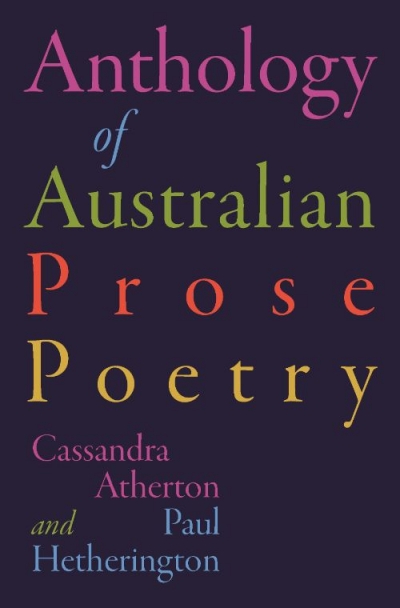Australian Poetry
A Thousand Crimson Blooms by Eileen Chong & Turbulence by Thuy On
Few books blur the line between beauty and ugliness more than Thomas Mann’s Death in Venice (1912). The novella follows the ageing writer Aschenbach, whose absurd over-refinement – born in part of repressed homosexuality – is dismantled by Tadzio, a beautiful boy he encounters on holiday in Venice. His obsession with Tadzio represents the displacement of mortality (Aschenbach will soon succumb to cholera) through a wilful surrender to decadence and decay.
... (read more)Toby Davidson’s first collection, Beast Language, was published nine years ago. That feels surprising: its freshness then makes it feel more recent now. Much of the movement in that book is present in his new collection, Four Oceans (Puncher & Wattmann, $25 pb, 93 pp), literally so, as we begin with a long sequence aboard the Indian Pacific from Perth to Sydney. It’s his younger self again, leaving home for the ‘eastern states’, but with an esprit de l’escalier twist, as that younger self gets to see and describe everything with the eye and language of the older, freer, more assured Davidson.
... (read more)These three new poetry collections are works by established poets at the top of their game in terms of poetic craft and the honing of insights into both life and art. These are voices developed across a significant number of previous collections, allowing for an emergence of innovation, confidence, and ease of style and mood.
... (read more)Oliver Driscoll’s note on his first book I Don’t Know How That Happened (Recent Work Press, $19.95 pb, 74 pp) praises the inclusive flatness of David Hockney’s still life paintings, and it is to this inclusiveness that his poems and prose pieces aspire. Droll reported speech creates a comic atmosphere but also moves into Kafkaesque alienation where nothing seems to follow any pattern.
... (read more)Precise observation is considered a prerequisite for poetry, but there are limits as to what a surfeit of detail can bring to a poem, or even to an entire volume. Three new poetry collections, each different in tone and subject matter, deploy close observation to varying degrees of success across poems that scrutinise domestic tension, interspecies dynamics, landscape, and everyday grace.
... (read more)Hear the way these poets use moonlight. According to a delicious detail in Jill Jones’s thirteenth full-length collection, Wild Curious Air (Recent Work Press, $19.95, 76 pp), ‘The moon’s light takes just over a second to reach our faces.’ In the context of meaning, note the length of the sound in the word ‘faces’. Jones affectingly contrasts this second with the light that left a star, centuries ago: ‘Always a past touches us, as this hot January forgets us.’
... (read more)In 1795, Friedrich Schiller wrote: ‘So long as we were mere children of nature, we were both happy and perfect; we have become free, and have lost both.’ For Schiller, it was the poet’s task to ‘lead mankind … onward’ to a reunification with nature, and thereby with the self. Central to Romantic thought, reimaginings like Schiller’s of Christian allegory, in which (European) humans’ division from a utopian natural world suggests the biblical fall, strike a chord in our own time of unfolding environmental catastrophe. Against such an unfolding, three new Australian books of poetry explore the contemporary relationship of subject to place.
... (read more)


